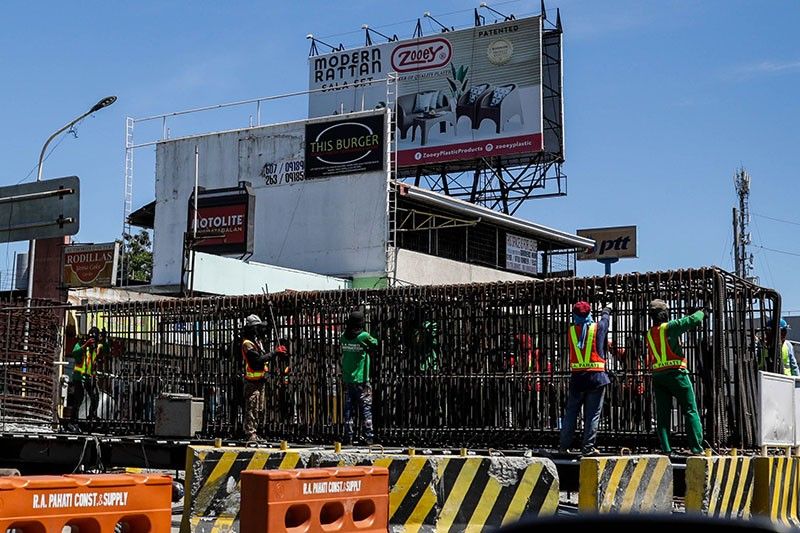Commentary: Why public-private partnership makes more sense now

We often hear Filipinos described as excellent planners. It is, therefore, such a big let-down for many when the government is caught without a plan. Our government officials would have us believe that they could not have planned for the COVID-19 because it is a new virus, using this line as their ready excuse and defense when things go wrong.
What is new is the virus, having epidemics is not. Having no plan on what to do during an epidemic is gross negligence and, for the people, scary. Every fire incident is unique, but firefighters have protocols for each case.
For example, the government could have ready quarantine arrangements, rather than improvising terminologies. We have CQ, ECQ, GCQ, MECQ, hard lockdown, etc. We even have the classification “calibrated and reasonable lockdown” for a specific locality. It makes people wonder if other cases are uncalibrated and unreasonable. We could have used numbers to classify the quarantine level, similar to what we have been used to for storm alerts.
Our officials would have us think that we could not have anything definite because we go by data and science. That is laudable if we are referring to decisions, not plans. Plans should be established under different scenarios; then, decisions have to be made based on plans corresponding to the situation. For now, what appears to be the plan of government for Metro Manila is to experiment from scratch.
At least we are seeing that the government is looking into the economic recovery. Basic macro-economic principles tell us that this can be achieved by increasing spending in household consumption, in government, and business through investment in plant and equipment.
For the level of household consumption to increase, the underlying assumption is that people have the money and that they are willing to spend it. At this point, having the money to spend is a big question for many households. For those who have some money, I seriously doubt whether they are inclined to spend it on goods and services other than those which are necessary. Given the uncertainties, people are thrust into a conservation mode.
The government, on the other hand, seems to be our best bet to prime the economy. Our economic managers have remained steadfast in pursuing the “Build, Build, Build” (BBB) infrastructure program of the administration and understandably so.
In theory, infrastructure projects have high multiplier effects. In other words, when these projects are done, their presence creates several other benefits. A train system, for instance, makes mobility more accessible and faster, which, in turn, increases people’s productivity. People can do more things by not getting stuck in their daily commute. Goods can be transported more efficiently, reducing costs.
But where is the government going to get the funds for this massive BBB program? The government revenues from taxes may not be sufficient, especially with other competing priorities. We have spent a large sum for the Social Amelioration Program during the lockdown, and we expect the national coffers to deplete given other necessary expenditures.
The next option for the government would be to raise tax levels or even craft legislation for new taxes. Doing either of these during this time of economic hardship is like kicking us when we are down. Besides, as a general concept, we collect money from the “rich” in terms of taxes and distribute them to the “poor” in terms of social services.
But, using taxes to finance projects that benefit the more privileged may not exactly be in keeping with this concept. Borrowing may produce the same effects eventually, albeit indirectly. When repayment time comes, the government uses public money that has been raised mostly from taxes.
There is another option, though. It has been tried and tested and is available as a standing plan—the public-private partnership (PPP). The basics are simple.
Take the example of a railway system. The country needs it, and the people demand the government to provide it, the government cannot afford it, the private sector has the money and capacity to build as well as operate.
But business being business, the company needs a return on its investment. The government may allow the company that put it up to manage the train operations, including charge fares and earn, for a limited period, say, 25 years.
After that period, the government acquires ownership for free. This example is a Build-Operate-Transfer PPP scheme. There are other variations, such as the Build-Lease-Transfer agreement used for the MRT-3 project.
Sen. Grace Poe in her speech in the recent Stratbase ADRi virtual round table discussion said that PPP is a “pro-poor policy wherein by contracting out the undertaking of large projects that are commercially viable, the government can free up funds to spend on health care and poverty alleviation projects.”
In the same forum, Rep. Edgar Mary Sarmiento, chairperson of the House Committee on Transportation, likewise supported PPPs saying, “In these projects, private companies worked hand in hand with the Transportation and Public Works department to give better infrastructure to the people.”
PPP makes sense as the country gets what it needs without straining the limited resources of the government. As a bonus, we leave these facilities in the hands of entities that are not only existentially interested in operating them well but are professionally equipped as well. The government can even live up to the hype of the whole-of-society approach.
Edwin Santiago is a fellow and member of the editorial board of think tank Stratbase ADR Institute.
- Latest

























